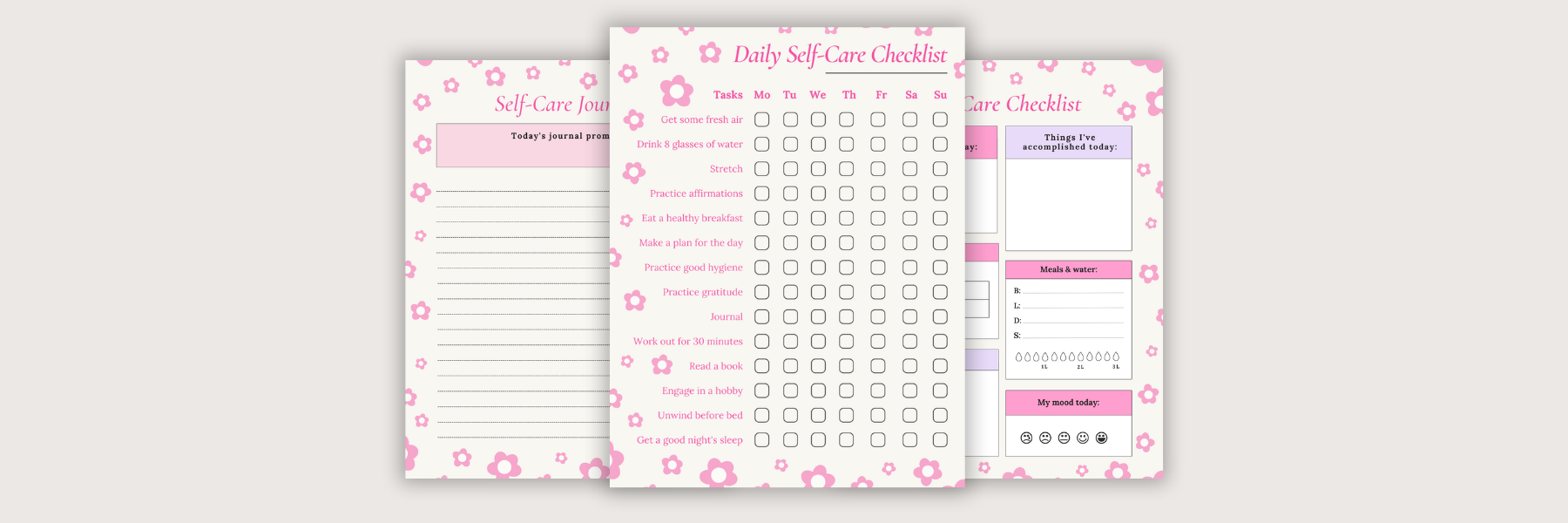35 skills to learn in your 20s
It’s time to talk about things to learn in your 20s!
Today’s post is all about your twenties—that incredible phase of life filled with opportunities, growth, and a touch of adventure.
Picture this as your personal roadmap to self-discovery and empowerment, crafted with care and tailored for those eager to make the most of this exciting decade.
Who am I to guide you through this? Just imagine chatting with a good friend who’s been there, done that, and can’t wait to share all the insightful tidbits she’s picked up along the way.
So, here’s the deal: Your twenties are like a blank canvas, and it’s your chance to paint it with vibrant experiences, invaluable skills, and a deeper understanding of yourself.
Together, we’ll explore a treasure trove of practical skills to learn in your 20s that can set you up for success, ranging from nifty financial know-how to those impressive social skills you never thought you’d master.
But personal growth is more than just ticking off to-do lists, right? It’s about embracing change, nurturing your passions, and developing that unshakable self-confidence.
I’ve got a backpack full of tips for you, whether you’re looking to level up your communication game, build rock-solid relationships, or simply find your zen in this whirlwind of a decade.

This post may contain affiliate links. That means that if you click on a link and purchase something I recommend, I will receive a small commission at no extra cost to you.
Important things to learn in your 20s
1. Save and live on a budget
Learning to manage your money is super important! Living on a budget means planning how much money you can spend and save each month.
Start by listing your monthly income and then all your expenses, like rent, groceries, and bills.
Try to spend less than you earn and put some money aside for saving. It’s like giving yourself a little financial safety net.
Look for ways to cut unnecessary spending, like skipping that extra coffee or eating out less often. Budgeting helps you have control over your money and achieve your goals.
2. Time management
Time is precious, and learning how to manage it helps you get things done while still having time for fun.
Use tools like to-do lists or phone reminders to keep track of tasks. Break big tasks into smaller steps and tackle them one at a time.
Prioritize tasks based on what’s most important, and don’t forget to schedule breaks too. Avoid multitasking, as it can make you less efficient.
Learning to manage your time helps you stay organized.
3. Eliminate negativity
Having a positive outlook makes life much brighter. Surround yourself with people who lift you up, and distance yourself from those who bring you down.
Practice gratitude by focusing on the good things in your life.
When negative thoughts pop up, try to challenge them with positive alternatives. It might take time, but replacing negativity with positivity can improve your mental well-being.
4. Understand how taxes work
Taxes might seem confusing, but they’re part of being a responsible adult. They help fund public services like roads and schools.
Learn about the different types of taxes, like income tax, and how they’re calculated.
Keep track of important documents like W-2s or 1099s. If you’re not sure, it’s okay to ask for help from a tax professional or use tax software to guide you.
5. The skill to be happy
Happiness is like a skill you can practice and improve in your 20s. Focus on things that make you feel good, whether it’s spending time with loved ones, pursuing hobbies, or being in nature.
Practice mindfulness and try to live in the present moment.
Remember that it’s okay to have bad days too. Finding joy in everyday moments can make a big difference in your overall happiness.

6. Table etiquette
Knowing basic table manners is helpful in social situations. Chew with your mouth closed, use utensils properly, and wait for everyone to be served before eating.
Keep your elbows off the table and engage in polite conversation. Remember, it’s not about being fancy; it’s about being respectful and making everyone feel comfortable.
7. Cleanliness
Staying clean and organized is good not just for you but also for those around you. Keep your living space tidy by putting things away after using them.
Regularly clean surfaces and wash your hands to stay healthy.
Don’t forget about personal hygiene, like brushing your teeth and taking showers. Cleanliness shows respect for yourself and others.
8. Understand how investments work
Investing is like planting seeds for your future financial growth. Learn about different investment options, like stocks and bonds.
Understand the concept of risk and return; higher returns often come with higher risks. Start small and consider seeking advice from financial experts before making big investment decisions.
9. Changing a tire
Knowing how to change a flat tire can be a real lifesaver. First, find a safe spot away from traffic. Use a jack to lift the car, then remove the flat tire and replace it with the spare.
Tighten the lug nuts, lower the car, and make sure everything is secure. This skill can save you time and money, especially in unexpected situations.
10. The skill to say no
This is among the most important things to learn in your 20s.
Saying no when you need to is important for setting boundaries and taking care of yourself. It’s okay to decline invitations or requests if you’re overwhelmed or need some personal time.
Be polite but firm in your response. Remember, saying no doesn’t mean you’re being mean; it means you’re prioritizing your own well-being.

11. Communication skills and social skills
Good communication helps you connect with others and build strong relationships. Listen actively when others speak, and try to understand their perspective before responding.
Practice making eye contact and using open body language.
When you talk, be clear and respectful. Social skills involve being friendly, considerate, and showing empathy towards others.
Engage in conversations and be a good listener; it makes interactions more enjoyable.
12. Learn how to heal your inner child
Your “inner child” is the part of you that holds onto your childhood experiences. Healing your inner child means addressing any past wounds or traumas.
This might involve seeking therapy or spending time doing things you enjoyed as a child. It’s about nurturing yourself and letting go of any negative emotions from the past.
13. First aid basics
Knowing basic first aid can help you assist someone in an emergency before professional help arrives. Learn how to apply bandages, perform CPR, and handle minor injuries.
Keep a first-aid kit handy and familiarize yourself with its contents. Being prepared can make a huge difference in critical situations.
14. Basic self-defense
Self-defense skills give you confidence and help you stay safe. Learn techniques to protect yourself, like how to break free from a hold or create distance from an attacker.
Awareness is key; trust your instincts and avoid risky situations whenever possible. Taking self-defense classes can empower you to handle unexpected situations.
15. Mental health skills
Taking care of your mental health is just as important as your physical health. Practice stress-relief techniques like deep breathing, meditation, or yoga.
Reach out for support when needed; talking to friends, family, or professionals can make a big difference. Be kind to yourself, and remember that it’s okay to ask for help.
You might also like: Learn to finally boost your personal growth in your 20s

16. Learn how to set boundaries
Setting boundaries means knowing your limits and communicating them to others. It’s okay to say no if something makes you uncomfortable or stressed.
Be clear about what you need, and be firm but polite when enforcing your boundaries. This skill helps you maintain healthy relationships and protect your well-being.
17. Learn to create a resume
A resume is a document that showcases your skills and experiences to potential employers. Include your contact information, work experience, education, and any relevant achievements.
Tailor your resume to each job application and keep it concise and easy to read. Proofread for errors before submitting. A well-crafted resume can open doors to job opportunities.
18. Learn to step out of your comfort zone
Trying new things can be scary, but it can also be incredibly rewarding. Stepping out of your comfort zone helps you grow and learn. Start with small challenges and gradually work your way up.
Whether it’s trying a new hobby or speaking in public, facing your fears can boost your confidence and expand your horizons.
19. Learn discipline
Discipline involves sticking to your commitments and staying focused on your goals. Create a routine that includes time for work, relaxation, and self-improvement.
Avoid procrastination by breaking tasks into manageable chunks and setting deadlines. Developing discipline helps you achieve long-term success.
20. Learn to do simple home repairs
Basic home repairs are one of those things to learn in your 20s that can save you money and give you a sense of independence.
Learn how to fix a leaky faucet, unclog drains, or patch up small holes in the wall.
Keep essential tools handy and follow online tutorials or guides. Tackling minor repairs on your own can be empowering and practical.

21. Be organized and use a calendar
Staying organized keeps you on top of your responsibilities. Use a calendar to track appointments, deadlines, and events. Make to-do lists and prioritize tasks based on their importance.
Declutter your physical and digital spaces regularly. Being organized helps you manage your time effectively.
22. Do proper research
Being able to research effectively is crucial in a world full of information. Identify reliable sources, such as reputable websites, books, or academic journals.
Take notes while researching and organize your findings. Learning to discern credible information from unreliable sources is a valuable skill in various areas of life.
23. Adhere to deadlines
Meeting deadlines shows reliability and responsibility. Break down tasks to allocate sufficient time for each step. Use reminders or alarms to stay on track.
If unexpected challenges arise, communicate with others about potential delays. Being punctual with deadlines builds trust and respect with colleagues, friends, and family.
24. Learn how to make memories that matter
Life is about creating meaningful memories. Spend quality time with loved ones, explore new places, and engage in activities that bring you joy.
Put away your devices and be present in the moment. Capture memories through photos or journals. Cherishing these moments adds richness to your life.
25. Learn to stand up for yourself
Advocating for yourself is an important skill to learn in your 20s. Express your thoughts and opinions calmly and assertively.
Use “I” statements to communicate how you feel and what you need.
Practice being confident without being aggressive. Standing up for yourself helps you maintain your self-respect and ensures your needs are met.
You might also like: Useful things you can learn whenever you're bored at home

26. Learn self-compassion and self-love
Being kind to yourself is essential for your well-being. Treat yourself with the same compassion you would offer a friend. Challenge negative self-talk and practice positive affirmations.
Embrace your strengths and accept your imperfections. Cultivating self-love boosts your confidence and resilience.
27. Stop comparing yourself to others
Comparing yourself to others can lead to negative feelings. Focus on your own journey and accomplishments.
Celebrate your progress rather than measuring yourself against others’ achievements.
Remember that everyone has their own unique path and challenges. Your worth isn’t determined by how you stack up against others.
28. Learn to cook
Cooking your meals is not only healthier but also more budget-friendly. Start with simple recipes and gradually expand your culinary skills.
Experiment with different ingredients and cooking techniques. Cooking can be a fun and creative way to nourish yourself and impress others.

29. Learn to read a map
Map reading is a practical skill, especially when navigating unfamiliar places. Understand the symbols and legends on the map.
Orient yourself with landmarks and cardinal directions. If you’re traveling, having a map handy can help you find your way without relying solely on GPS.
30. Embrace failure and don’t give up
Failure is a part of life’s journey. Instead of fearing it, view failure as an opportunity to learn and grow.
Analyze what went wrong, make adjustments, and keep trying. Persistence pays off, and each setback can bring you closer to success.
31. Learn how to cope with stress
Stress is normal, but managing it is key to your well-being. It’s also one of the most important things to learn in your 20s.
Practice relaxation techniques like deep breathing, exercise, or meditation.
Break tasks into manageable steps to avoid feeling overwhelmed. Reach out for support when needed. Finding healthy ways to cope with stress improves your mental and physical health.
32. Don’t make excuses; apologize
Taking responsibility for your actions shows maturity. Instead of making excuses, admit your mistakes and apologize sincerely.
Acknowledge the impact of your actions on others. Apologizing builds trust and demonstrates your commitment to being a better person.

33. Relationship skills
Building healthy relationships requires good communication, trust, and empathy. Listen actively, be supportive, and show appreciation for those in your life.
Resolve conflicts through open dialogue and compromise. Invest time and effort in nurturing relationships that bring positivity to your life.
34. Driving
Learning to drive gives you independence and opens up new opportunities. Take driving lessons to learn the rules of the road, traffic signs, and safe driving practices.
Practice in various driving conditions to build confidence. Remember that responsible driving helps keep you and others safe on the road.
35. Don’t be afraid to ask for help
Asking for help is a sign of strength, not weakness.
Whether it’s seeking advice from a mentor, asking for emotional support, or requesting assistance with a task, reaching out to others is important.
People around you are often willing to offer guidance and support when you need it.
You might also like: 20 powerful ways to respect yourself in your 20s


What are the most important things to learn in your 20s in your opinion?

I’m a personal growth and self-care expert, as well as an avid motorcycle enthusiast and coffee and sweets lover. Through Lauraconteuse, I provide insightful and practical advice on topics such as self-care, self-love, personal growth, and productivity, drawing from my very own extensive experience and knowledge in the field. My blog has helped countless people achieve their goals and live more fulfilling lives, and my goal is to continue to inspire and empower others.








Learn to drive is critical. If you live in a city we’re public transportation is almost non existent, driving will open many doors.